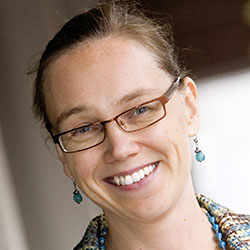
A drive to ensure Australasian clinicians are at the cutting edge of early diagnosis in cerebral palsy prompted a network of researchers from across Australia to devote most of November to boosting the skills of health professionals.
The Australasian Cerebral Palsy Clinical Trials Network Centre for Research Excellence (AusCP- CTN CRE), ran a series of training programs in Brisbane to equip health professionals to recognise the early signs of cerebral palsy, even in very young babies.
AusCP-CTN CRE Chief Investigator, Professor Roslyn Boyd, said experts had been assembled from around the globe to deliver the training programs including the Hammersmith Infant Neurological Examination (HINE), the General Movements Assessment (GMs) and the Hand Assessment of infants (HAI).
“We had a tremendous turnout to our training events, and thanks to the generosity of our experts from Finland (Professor Leena Haataja) and Italy (A/Professor Andrea Guzetta) we were able to offer training at a basic or an advanced level, to suit the experience of attendees,” Professor Boyd said.
Professor Leena Haataja delivered the HINE Training, a standardised and score-able clinical neurological examination used to assess infants from 2-24 months of age.
The International Clinical Practice Guideline for the Early Accurate Diagnosis of CP recommends HINE in situations where other predictive tools are unable to be used, making the training an invaluable addition to the base skillset of clinicians from a range of specialty areas.
Professor Haataja ran a Train the Trainer session to equip 18 senior clinicians from around Australia and New Zealand with the skills to deliver HINE training locally in their respective states; and a further three training courses for 45 medical and allied health professionals to allow them to commence assessment of children at risk of cerebral palsy as soon as possible.
Associate Professor Andrea Guzetta supervised the delivery of four General Movements training workshops at basic and advanced level, to instruct attendees how to assess a baby’s spontaneous movements to predict later outcomes of cerebral palsy.
Almost 80 clinicians attended the General Movements training, with most of these originating from Queensland.
Professor Boyd said the training extravaganza would reassure parents that Australian clinicians are skilled and equipped to use the latest diagnostic methodologies to ensure children with cerebral palsy are identified early.
“The whole aim of the AusCP- CTN CRE is to improve outcomes for children with cerebral palsy by diagnosing children early and fast-tracking them to early intervention” Professor Boyd said.
“We are proud to have delivered this training and encourage clinicians who are keen to benefit from this training to join our network and stay abreast of upcoming events on our website.”
Visit https://cre-auscpctn.centre.uq.edu.au/education for more information on training opportunities.



